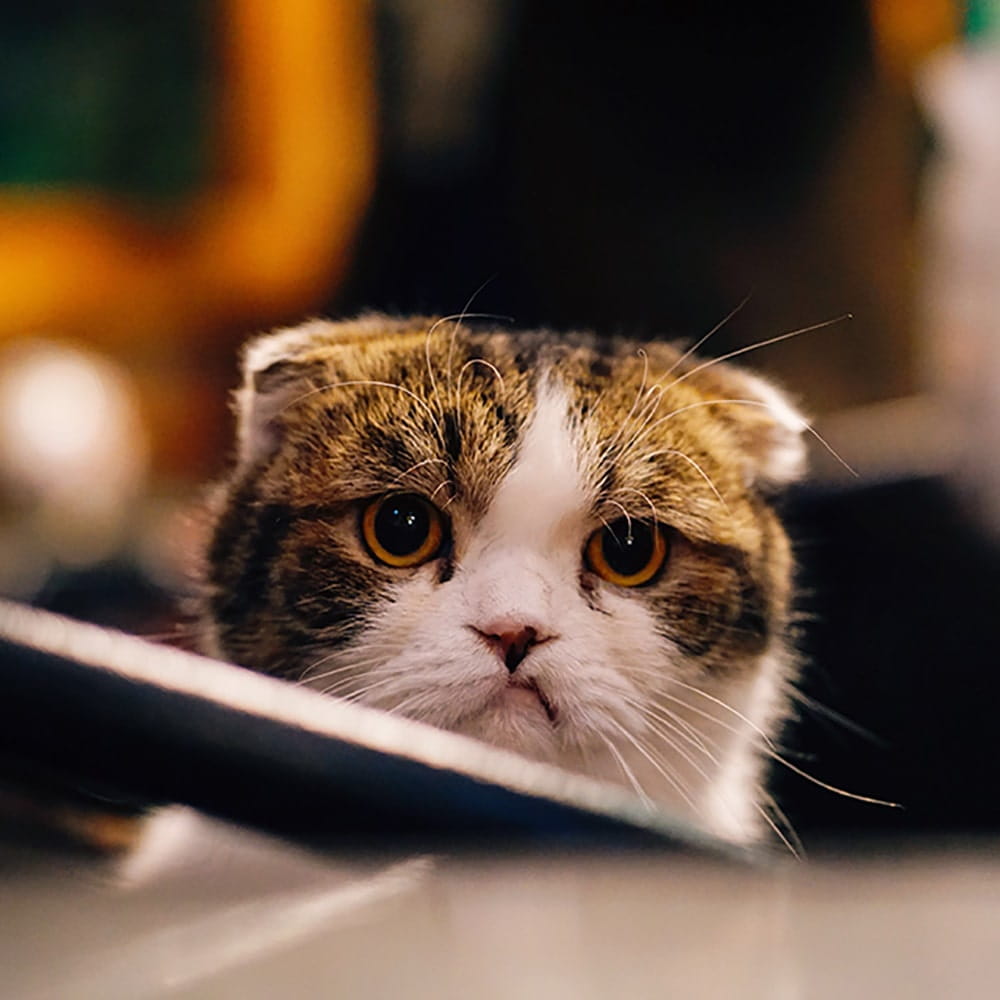What are the signs that your cat is stressed?
Cat stress: what are the signs to watch out for?
What is feline anxiety?
Undeniably, the effects of several lockdowns and working from home have changed the way we all operate our lives. After being used to living out in the world, all of a sudden our homes are the centre of our universe and for our feline friends that means one thing: anxiety.
Cats are known to be fiercely independent. It is unusual that a cat doesn’t enjoy their own space and company. Cats thrive on routine, sleep and are notoriously reactive to change and ambient stress from humans. They are perceptive, intelligent and sensitive. Imagine then, how confused they must have been when we all suddenly started staying at home 24/7.
Previously, they could look forward to a quiet day to themselves, but during months of lockdowns and changes to our working patterns, they were suddenly confronted with a total change of routine and atmosphere. The house was full of noise, children and work stress as we laboured through online meetings. They knew something was up, but no one thought to explain it to them.
Why do cats get stressed?
During the pandemic, vets from all over the world saw an increase in worried owners assuming their cats were physically ill. Tiddles was off her food and was constipated. She was uncharacteristically energetic, her heart rate was up and her pupils were dilated. She seemed thinner. Meanwhile, across the street, Sheba was hiding in a cupboard and becoming overweight. She slept for vast periods of time and started to chew on inedible items such as jumpers and plastic. Something was wrong.
What are the 10 signs that your cat is stressed?
Of course, it is always best to eliminate any physical causes of apparent illness but, more often than not, our cats are suffering from psychological issues. They are masters at what psychologists call ‘displacement activities’. In the same way that humans may cope with an issue by obsessively cleaning or over-exercising, cats will over-groom to the point of fur loss. They may become fixated by scratching furniture or hurl themselves at walls. Their breathing may be erratic; they may shake, pace, cower or growl. Other key signs of feline anxiety include:
- Crouching
- Stalking movements
- Nose-licking
- Hissing or vocalising
- Flat ears
- Sudden changes to digestive patterns such as vomit, diarrhoea and constipation
- Going to the toilet in an odd location, such as a shower stall or bathtub
- Hiding or disappearing for long periods
- Changes in appetite
- Has cat stress increased in lockdown?

Flat ears can be a sign that your cat is stressed.
Has cat stress increased in lockdown?
During lockdown, we were all plunged into a ‘new normal’ overnight, but cats need gradual adjustments in order to adapt. We may have become emotionally reliant upon our pets which, rather than being reassuring to them, may have caused them anxiety. This is particularly the case if they were used to their own space previously. We may have found them annoying whilst we were trying to work and may have punished them too severely. Whatever the case, it is probable that your intelligent and sensitive feline companion felt much the same way you did during this period, namely, confused and anxious.




